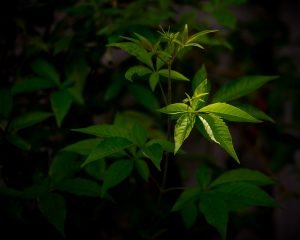Lagundi (Vitex negundo) is a common plant found in the Philippines and various parts of Asia. It has long been recognized as a medicinal herb, utilized in traditional systems of healing such as Ayurvedic Medicine in India, Chinese Medicine, and other indigenous practices across different countries.
Characteristics of Lagundi
Lagundi is a shrub that can grow up to 5 meters tall. Its leaves are distinctive, with five “fingers” resembling a hand, and are often used in herbal preparations.
Due to its extensive use in traditional medicine, Lagundi has been the subject of numerous studies. While not all of its claimed benefits are scientifically proven, there is evidence to support its effectiveness in addressing certain ailments.
Traditional Uses of Lagundi

Lagundi has been used for a wide range of health conditions. Here are some of its notable applications, particularly those supported by modern research:
- Relieves cough, colds, and asthma. Lagundi is known to help alleviate respiratory conditions, including persistent coughing, nasal congestion, and asthma.
- Soothes sore throat (pharyngitis). Its anti-inflammatory properties may provide relief from throat irritation and discomfort.
- Eases rheumatism and body pain. Lagundi is often used as a natural remedy for joint and muscle pain.
- Other traditional uses. Lagundi has been cited as a treatment for symptoms of chickenpox or measles, diarrhea, boils, and even intestinal worms, though further studies are needed to validate these claims.
How to Use Lagundi
To prepare Lagundi as a home remedy, follow these steps:
- Harvest and chop Lagundi leaves until you have about half a cup (1/2 cup). For conditions like rheumatism, you may include the roots of the plant.
- Boil the leaves (and roots, if applicable) in two cups of water for about 10 minutes.
- Strain and drink half a cup of the Lagundi decoction three times a day.
Warnings and Reminders
- Herbal medicines like Lagundi are considered home remedies and are suitable for mild conditions that may not require a doctor’s consultation. However, if symptoms such as persistent coughing continue, seek medical advice.
- Herbal remedies should not replace prescribed medications. Always inform your doctor if you are using herbal medicines.
- Like any medication, Lagundi may have side effects, though these are typically rare. Be cautious and discontinue use if adverse reactions occur.
Lagundi has stood the test of time as a natural remedy, offering relief for various ailments. While it is a useful herbal medicine, it is essential to use it responsibly and seek medical guidance when needed to ensure safety and effectiveness.


